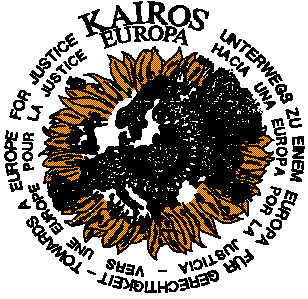| A. | whereas the factors which largely determine capital mobility are: |
| (a) deregulation of financial and capital markets, |
| (b) progress in information systems and communications technology, |
| (c) financial innovation, |
| (d) accumulation of financial assets, |
| (e) the emerging role of institutional investors, |
| (f) elimination of restrictions on the establishment of banks and financial institutions, |
| and whereas these factors have contributed to the globalisation of markets, |
| B. |
whereas „globalisation" is taken to mean expanding international trade, the growth of multinational business and the increasing interdependence through capital flows; whereas, however, the principal force behind global markets and processes has been the phenomenal growth of global finance and the increasing role of institutional investors, |
| C. |
whereas the monetary authorities of the Member States are faced with the consequences of speculation on investment and trade, creating uncertainty as regards exchange-rate fluctuations, |
| D. |
acknowledging that since the mid-1980s the phenomenon of globalised markets for finance, capital and investment and that of deregulation of markets have restricted the scope for capital controls, have influenced the determination of exchange rates and have in some cases fed speculation, |
| E. |
aware of the influence which globalisation consequently has on macroeconomic policies and their traditional instruments with regard to the four objectives: boosting investment, controlling inflation, stabilising exchange rates and increasing private savings, |
| F. |
expressing its disquiet at the implications for national policies since the trend of globalisation gained momentum, and for the stability of the financial system; as to the latter, the payment and financial system has become more fragile, highly risky and has caused volatility in asset prices, |
| G. |
aware of the ease with which the foreign exchange markets can be used for „money laundering", |
| H. |
whereas the relative strengthening of the private sector and corresponding weakening of the public sector in the conduct of monetary policy constitute a redistribution of control over monetary policy, due to unregulated financial innovations and the deregulation of the capital markets, |
| I. |
aware of the huge volume of trading on the world's foreign exchange markets which in April 1992 was estimated by the Bank of England at US $ 1.01 billion per day, |
| J. |
expressly rejecting the simplistic theory that the turbulence in the ERM is entirely due to „speculators", |
| K. |
pointing out that „speculation" is often „prudence" in international transactions by governments, banks, multinational companies, pension funds and private individuals, |
| L. |
recognising the difficulty of distinguishing clearly between speculative transactions and those that are the result of prudential hedging by normal traders, |
| |
Through public debt the state becomes a hostage of the capital markets |
ditto |
ditto |
| |
Capital and tax flight: the rich move their capital on the transnational off-shore markets through legal loop-holes and economic crime and so rob the state of taxes in gigantic measure |
ditto |
ditto
(in Germany in 1992 tax flight on financial assets only: at least 60 billion DM) |
| |
Profits on speculation are tax-free |
ditto |
ditto |
| |
The banks drive up the interest rates for many over-indebted countries through rescheduling the debts, with interest rates being far above the rates of real economic growth |
ditto |
In the North the profits of those who control financial assets are higher than the profits of income through dependent work or from productive firms |
| |
A special form of redistribution from South to North is operated through the IMF and its structural adjustment programmes — the IMF which is completely controlled by the rich countries (annual net capital transfer from poor South to rich North: US $ 50 billion according to UNDP) |
Additional redistribution from East to West also through IMF |
Only owners of financial capital profit from the normal monetarist policies with a one-sided emphasis on monetary stability = structural adjustment in the North |
| in the South |
in the East |
in the North
|
| End debt slavery through: |
ditto |
Strengthen the public tax authorities so that they can effectively combat tax flight (in Germany a single official drive brought in 11.5 billion DM in additional tax) |
| acknowledging the illegality of the debt contracted with conspiring elites in the indebted countries |
|
|
| acknowledging the debt of the North through 500 years of exploitation to this day, by means of compensation |
|
Put much higher taxes on financial assets and gains, and on real estate |
| developing an insolvency law for indebted states (according to the proposals of K. Raffer) |
|
Allow tax deductions on unpayable debt only to those bands which cancel it (instead of nominally maintaining the debt as receivables) |
| help return the capital/flight money of corrupt elites to the indebted countries through measures of bank control (see above) |
|
|
| Change the terms of trade between the industrial countries and those producing raw materials |
ditto |
Change the monetary system and policy. Stop orienting it one-sidedly towards stability of capital accumulation and strong currencies. Balance stability with social and ecological interests through the change of structural adjustment policies towards a new paradigm |
| Develop structural adjustment programmes according to a socio-ecological, not a neo-liberal, paradigm of economy |
ditto |
|

 Kairos Europa
Kairos Europa
